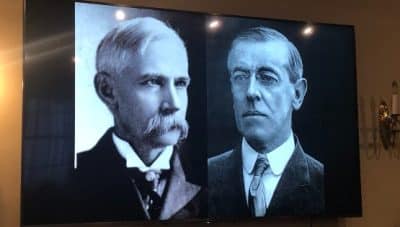
The outcome of this debate has profound moral consequences. The government’s capacity to invest in the common good and responsibly reduce the debt depends on raising more revenue. Letting tax cuts that only benefit the richest two percent expire isn’t a magic bullet, but it’s a necessary component of a balanced solution that doesn’t harm poor families or slash Social Security, Medicare and Medicaid benefits for current or future beneficiaries.
Clergy have spoken clearly about our duty to protect low-income families in the fiscal showdown negotiations. Inspired by the clear mandates of Scripture, many of our nation’s most prominent faith leaders have drawn a circle of protection around programs such as education funding, food stamps, and the Earned Income Tax Credit. This stance reflects not only religious teachings about justice and compassion, but also popular opinion among people of faith. A post-election poll by Public Religion Research Institute showed that majorities of all major religious demographics (with the lone exception of white evangelical Protestants) oppose cutting protections for the poor in order to reduce the deficit.
In addition to programs aimed expressly at low-income Americans, we also have a responsibility to defend Medicaid, Medicare, and Social Security. Social Security keeps 21 million Americans out of poverty every year. Medicaid protects not only low-income children and families, but also provides long-term care to millions of older and disabled Americans. And Medicare is the cornerstone of our national commitment that American seniors receive the healthcare they need regardless of economic status. Using deficits caused by irresponsible tax cuts, unfunded wars, the financial crisis and an inefficient healthcare system as an auspice to weaken programs that ensure basic economic security and access to health care for millions of Americans is wrong. Arguing that we must slash these programs now to avoid destroying them later is a failure of leadership.
Faith leaders of the PICO National Network are telling our elected officials in no uncertain terms that protecting the poor, preserving the social contract and making the richest Americans pay their fair share are nonnegotiable priorities. This message is particularly important as corporate CEOs intensely lobby both parties to enact an agenda that cuts taxes for rich people and powerful corporations while undermining needed benefits for seniors and working families. Trickle-down economics and austerity benefit only the wealthy and powerful, and the rest of us pay the price.
Some conservative leaders argue that the religious obligation to care for the vulnerable – which is common to all faiths — applies to individuals but not government. But Scripture is clear that nations, not just individuals, will be judged by how we treat the least among us. Furthermore, private religious groups alone cannot meet the needs of struggling families. Just four percent of food aid to hungry Americans comes from private sources. Government has to play a strong role. Those who would let people suffer rather than have government provide assistance put political ideology before the commandment to love our neighbors.
The fiscal showdown is a day of reckoning for the conservative movement’s long-term “starve the beast” political strategy. For decades, they have cut taxes at every opportunity in order to run up deficits that would force the government to dramatically scale back the safety net. As right-wing lobbyist Grover Norquist put it, the objective is to shrink government to the size where he can “drag it into the bathroom and drown it in the bathtub.” The moral imperative to ensure that this plan fails is clear, and the well-being of millions of Americans who are precious in the eyes of God depends on it.
Butler is executive director of Faith in Public Life. Whitman is director of policy at PICO National Network.










